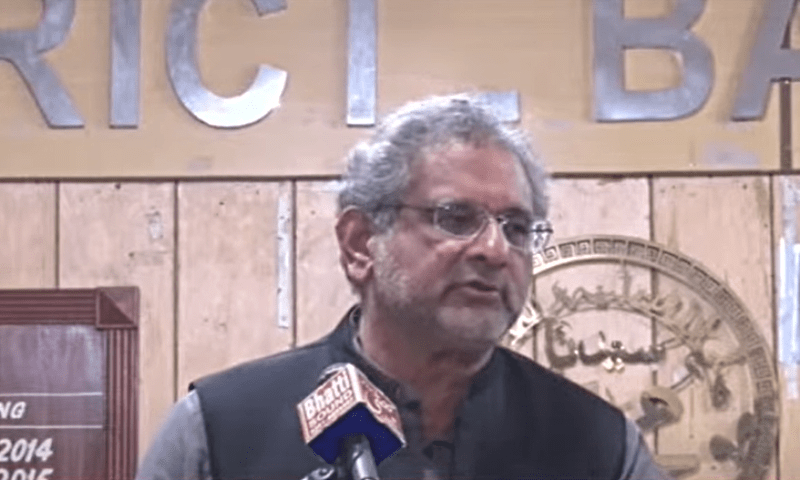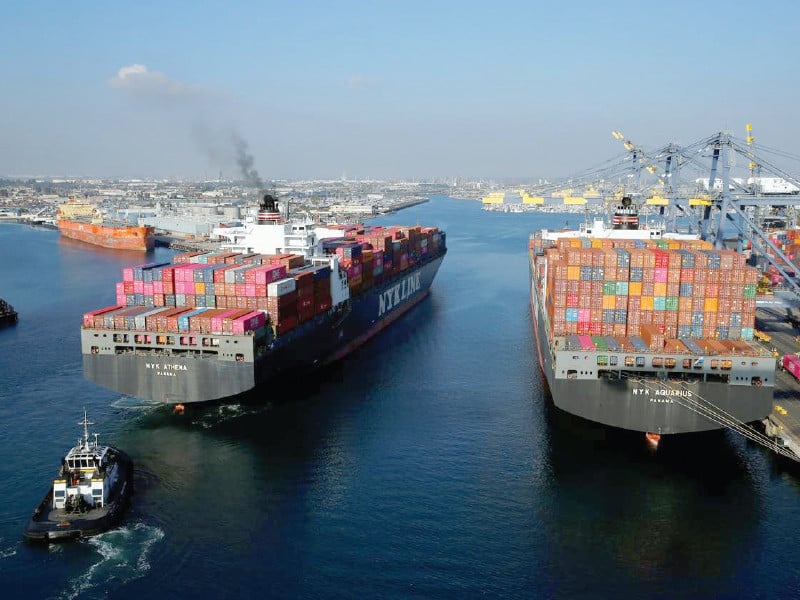H2: The Importance of Democracy for Pakistan’s Economic Growth
Former Prime Minister Shahid Khaqan Abbasi recently shared his views on the crucial relationship between democracy and economic progress at a session organized by the Pakistan Institute of Legislative Development and Transparency (Pildat). The event, titled “Can Economic Progress and Democracy Coexist?”, brought together key figures, including former federal ministers and business leaders, to discuss the country’s economic trajectory and political challenges.
Abbasi emphasized that Pakistan’s economic growth is inextricably linked to the functioning of democracy. He argued that the country cannot progress economically unless it fully embraces democratic practices, transparency, and accountability. His statement highlights the ongoing debate regarding Pakistan’s political structure and its implications for the national economy.
H3: The Role of Democracy in Economic Development
During the session, Abbasi highlighted that many nations which achieved economic prosperity under autocratic regimes differed significantly from Pakistan. These countries, according to him, had long histories of social discipline and homogeneity, factors that are absent in Pakistan. He stressed that such autocracies benefited from external aid, which is no longer a feasible solution in today’s global political environment.
Abbasi pointed out that the current geopolitical climate does not favor aid-driven economic growth, as was the case in past decades. This shifting global dynamic, he stated, means that Pakistan’s economic development must be driven by a robust democratic system, where governance, efficiency, and transparency take precedence.
H2: The Shortcomings of Autocratic Regimes in Pakistan’s Development
Abbasi also reflected on the narrative that Pakistan’s autocratic regimes were economically successful. He explained that this perception was rooted in the aid-driven environment during the military-led administrations, which sustained economic growth temporarily. However, he argued that the long-term success of Pakistan’s economy can only be achieved through consistent democratic practices, as opposed to relying on autocratic rule or foreign aid.
He noted that autocracies in the region often saw brief economic upticks but failed to address fundamental issues such as human development. Pakistan’s experience, Abbasi said, is a testament to the limitations of autocratic governance in fostering sustainable growth.
H3: The Need for Transparent and Accountable Governance
The session also featured remarks by former caretaker federal minister for privatisation, Fawad Hasan Fawad. He pointed out that although dictatorships might have seen short-term economic successes, they failed to focus on human development and social welfare. According to Fawad, a government’s ability to prioritize efficiency, transparency, and accountability is essential for achieving long-term economic progress.
Fawad criticized the mishandling of privatisation in Pakistan, citing the examples of state-owned enterprises like Pakistan International Airlines (PIA) and Pakistan Railways. He highlighted that mismanagement and lack of oversight have severely hampered the potential of these institutions, thus preventing Pakistan from fully reaping the benefits of privatisation.
H2: Challenges in Achieving Economic Growth Through Democracy
Another prominent speaker, Khurram Dastgir, who served as Pakistan’s federal minister for commerce, discussed the ongoing economic challenges faced by the country. He reflected on the period when his party was in power and asserted that the government had successfully addressed major economic challenges, such as terrorism and energy shortages.
Dastgir emphasized that the success of democratic governments in Pakistan hinges on their ability to ensure transparency, accountability, and active engagement with stakeholders. These elements are crucial for creating a conducive environment for economic growth and for attracting foreign investment. However, Dastgir also acknowledged that Pakistan’s political instability and inconsistent policies have often undermined these efforts.
H3: The Impact of Political Instability on Economic Activity
Faryal Sadiq, the Chief Marketing Officer of Interloop Ltd, argued that the core issue affecting Pakistan’s economic development is not democracy itself but the inconsistency in policies and political instability. According to Sadiq, such instability hinders economic activity, making it difficult for businesses to plan long-term investments and growth strategies.
Sadiq emphasized that for the private sector to drive economic progress, Pakistan needs stability and consistency in its policy framework. Businesses, she said, require a predictable and transparent environment to thrive, and without these conditions, the country will continue to struggle economically.
H2: Prioritizing Economic Issues in Political Discourse
The session concluded with remarks from Pildat President Ahmed Bilal Mehboob, who stressed the need for a shift in political discourse. Mehboob argued that economic issues are often sidelined in favor of abstract political debates, and this must change if Pakistan is to achieve sustainable development.
He called on the government and political leaders to focus more on the economic challenges faced by the country and to adopt a more pragmatic approach to governance. This includes prioritizing policies that foster economic growth and stability, rather than allowing political instability to undermine the country’s potential.
H3: Key Takeaways from the Discussion
The discussion at the Pildat session made it clear that the path to economic prosperity for Pakistan lies in strengthening democratic governance. Key takeaways from the session included:
- Democracy as a Driver of Economic Growth: Economic progress is inseparable from a functioning democracy that values transparency, accountability, and citizen engagement.
- Shortcomings of Autocratic Governance: While autocratic regimes may have temporarily boosted the economy, they fail to address essential human development and long-term structural issues.
- The Role of Private Sector and Policy Stability: Consistent policies and a stable political environment are crucial for businesses to thrive and contribute to economic growth.
- The Need for Privatisation with Accountability: Privatisation can benefit Pakistan, but it must be done transparently and efficiently to avoid the pitfalls seen in state-owned enterprises like PIA and Pakistan Railways.
- The Importance of Economic Issues in Political Discourse: Political leaders must shift focus towards resolving economic challenges, prioritizing growth over abstract political narratives.
H2: FAQs on Pakistan’s Economy and Democracy
- Why is democracy crucial for Pakistan’s economic growth?
- Democracy ensures transparency, accountability, and good governance, which are essential for sustainable economic development.
- How did autocratic regimes affect Pakistan’s economy?
- Autocratic regimes temporarily boosted the economy through external aid, but they failed to foster long-term growth and address critical social issues.
- What role does political stability play in economic progress?
- Political stability provides a consistent policy framework, which is essential for attracting investments and ensuring long-term economic growth.
- What are the challenges in privatising state-owned enterprises in Pakistan?
- Lack of transparency and accountability has led to the mismanagement of state-owned enterprises like PIA and Pakistan Railways, hindering successful privatisation.
- How can Pakistan achieve economic prosperity in the future?
- By focusing on democratic governance, transparent policies, and private sector development while addressing political instability.
MUST READ
https://flarenews.pk/2024/12/20/kp-committee-dismantles-kurram-bunkers-to-restore-peace/



